Prof. Edward Lee joined the Santa Clara Law faculty in 2024. His research and teaching includes Internet Law, AI, copyright law, design law, international intellectual property law, and torts.
Why do you write?
Legal scholarship I write to add my ideas to the debate over how best to respond to a legal problem. It may be wishful thinking, but I write because I believe I have something meaningful to contribute to public debate over legal issues. If I weren't writing scholarship, I would write for the pure joy of it. I do enjoy legal scholarship, but not the footnotes!
Is there a scholar who most inspires you?
Many scholars inspire me. We are blessed in this field to have so many scholars doing very interesting work. It's hard to pick just one. But, if I had to, I'd say Pam Samuelson and Mark Lemley. I know that's two! But the sheer breadth and impact of their scholarship, not to mention their writing styles, are inspiring for me to want to up my game. I imagine it's similar to what Shohei Ohtani's teammates say.
What do you think has been your most impactful work?
Ah, I think that's either for others or the test of time to say. But I will say that I have a bad memory of what I said in past scholarship and often have the feeling that my current work in progress is the "most important" thing I will write. Maybe that combination has served me well. It's helped me to stay engaged in my current writing.
What work are you most proud of and why?
I'd probably say my writing about user-generated content and, more recently, my book and articles about NFTs. Sorry, I know that's two again! But they both discuss individual creators, different challenges they face, and possibilities that new technologies may open up for them. The Creator Economy is alive and well, but individual creators still face many challenges, including disruptions caused by AI. I'm proud of giving a voice to some of these creators and trying to call attention to ways in which society and technology can help support them and artistic pursuits, including through the copyright system.
What's your next project?
Well, I think it will probably be related to AI. Part of me wants to move on from AI after writing a few articles on this topic, I have to admit. But the other part of me thinks AI is so fascinating--and there's still so much to write about. I haven't even written about fair use or deepfakes yet. Hard to resist.
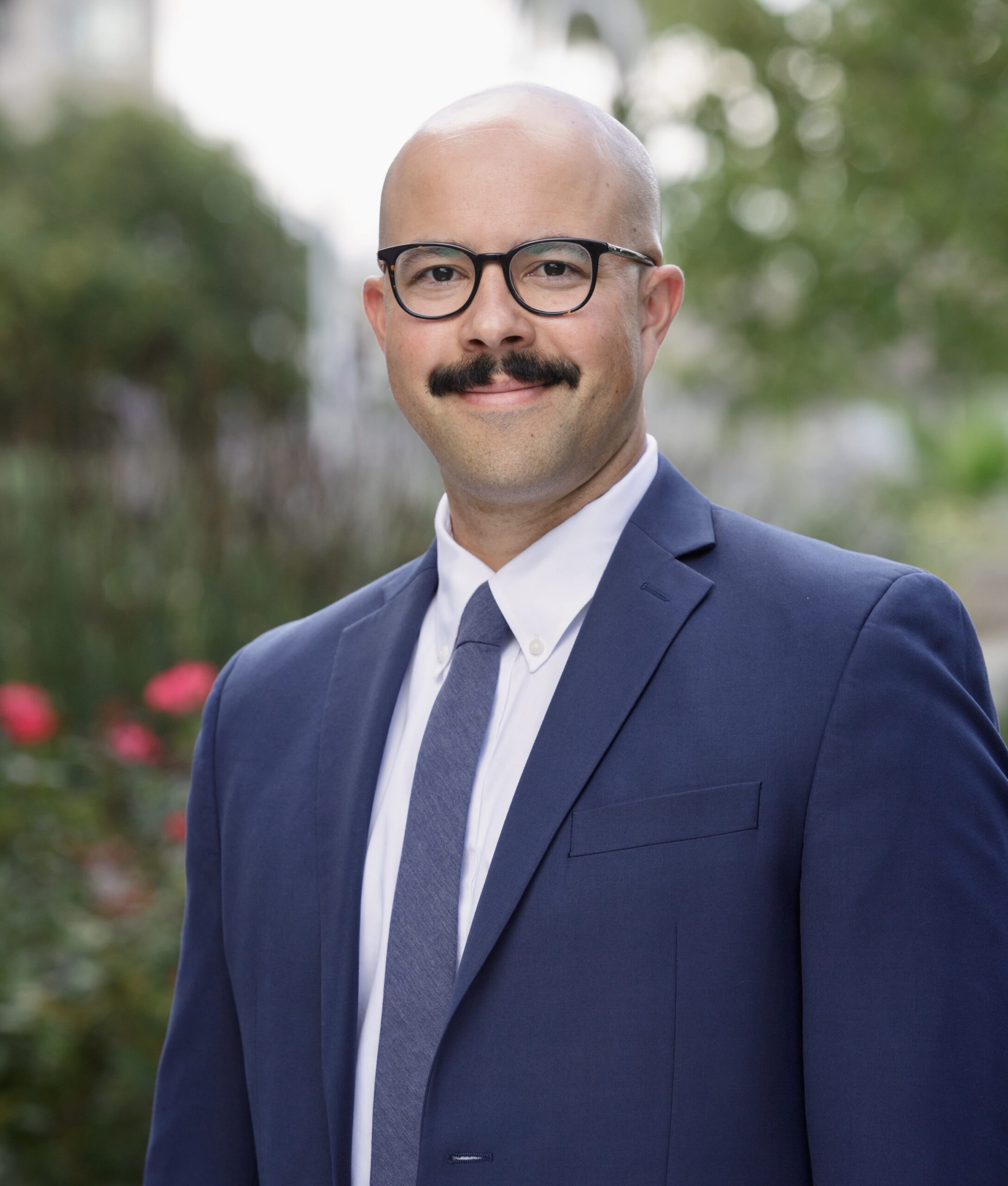
Prof. Taylor R. Dalton joined the Santa Clara Law faculty in 2022. He focuses on international law and courts, international humanitarian law, foreign relations law, and civil procedure.
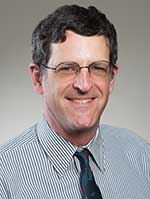
Professor David Sloss, the John A. and Elizabeth H. Sutro Professor of Law, joined the faculty in 2008. His scholarship focuses on the relationship between domestic law and international affairs.
Why do you write?
I write for two main reasons. First, I really love the process of research and writing. Even if I knew that no one would read my work, I would probably still spend time on research and writing because I enjoy it. Second, I hope that my scholarly work will help promote the development of a world in which all governments respect and protect the fundamental human rights of all human beings.
Is there a scholar who most inspires you?
It is impossible for me to single out one person because there are dozens of scholars whose work I greatly admire. In the field of U.S. foreign relations law, I admire the scholarship of Curt Bradley, Bill Dodge, Michael Ramsey, Martin Flaherty, and Carlos Vazquez, among others. In the field of U.S. constitutional law, I have been heavily influenced by the scholarship of Cass Sunstein, Mark Tushnet, Robert Post, Larry Kramer, and others. In the field of international law, I admire Tom Ginsburg, Greg Shaffer, Jose Alvarez, Karen Alter, and Oona Hathaway, to name just a few people. I really admire Harold Koh because he has moved seamlessly between academia and government service over the course of his career, making important contributions in both areas.
What do you think has been your most impactful work?
In 2011, I co-edited a book on the history of international law in the U.S. Supreme Court. We had more than 15 contributing authors. It is the first and only book to provide a comprehensive account of international law in the U.S. Supreme Court from 1789 until the early 21st century. The book has become an essential resource for both scholars and litigators who work on issues involving the application of international law in U.S. courts.
What impact did it have?
The book has been cited in at least 75 law review articles over the past decade. I know that litigators use the book as a resource, but courts tend to cite cases that are discussed in the book, rather than citing the book itself.
What work are you most proud of and why?
I am very proud of my book "The Death of Treaty Supremacy: An Invisible Constitutional Change." The book traces the history of a particular constitutional rule, which I call the "treaty supremacy rule." Article VI of the Constitution specifies that treaties are "the supreme law of the land" and that "judges in every state shall be bound thereby." From the Founding until World War II, there was almost universal agreement that Article VI created a mandatory constitutional rule -- that judges are obligated to enforce treaties. However, there was an invisible constitutional revolution that occurred between about 1945 and 1965. Since about 1965, the common understanding has been that the treaty supremacy rule is optional -- judges have a lot of discretion in choosing when and whether to enforce treaties. My book tells the story of that invisible constitutional revolution. The revolution was invisible because most of the people responsible for the revolution believed that they were following existing precedent, and most scholars and judges today believe (wrongly) that modern law is consistent with the doctrine that courts applied before World War II.
What's your next project?
I am currently working on several major projects. I have two books that will be published in 2022 -- a book on Chinese and Russian information warfare (to be published by Stanford University Press) and a book that explores the question whether the international legal order is unraveling (to be published by Oxford University Press). Currently, I am starting work on a book that will criticize the U.S. Supreme Court for its role in eroding the foundations of American democracy.
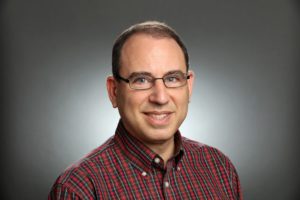
Prof. Eric Goldman joined the faculty in 2006 and holds several administrative titles, including Associate Dean for Research, Co-Director of the High Tech Law Institute, Supervisor of the Privacy Law Certificate, and Assistant Director of the Tech Edge JD program. His research focuses on Internet Law, Intellectual Property, and Advertising & Marketing Law, and he blogs on those topics at the Technology & Marketing Law Blog.
Why do you write?
I write to help readers understand the world through the unique perspectives I have. I get a lot of professional satisfaction when I get an email from a stranger who says that they read one of my works and it helped them solve a thorny problem or see things in a new way.
Is there a scholar who most inspires you?
I am inspired by many scholars, but Prof. Pam Samuelson of UC Berkeley Law School stands out as especially inspirational. When I was first forming my professional identity as a scholar, I tried to emulate the way that Prof. Samuelson successfully wrote for multiple audiences, including other academics, policy-makers, and technologists. I also admire how Prof. Samuelson turns her research into tangible action that benefits the communities she serves.
What do you think has been your most impactful work? What impact did it have?
My most-read work is my explainer of the California Consumer Privacy Act, and my most cited work is my 2006 essay explaining how “bias” in search engines and other algorithmically mediated publications is both inevitable and beneficial.
However, I expect that my most impactful academic work will be my 2018 paper on Emojis and the Law. The Emojis and the Law paper has already been cited by courts in the US and internationally, and I’ve done several judicial trainings on the topic. It has also spurred conversations about how courts depict emojis in their opinions and how legal databases handle those symbols. The paper has crossed over to non-legal audiences, and I’ve done interviews around the globe discussing it. As a sign of its broad appeal, it interested the most skeptical audience imaginable: my teenage daughter.
I also want to highlight a project of mine that I anticipate will have even greater impact. In 2018, the High Tech Law Institute held a conference called “Content Moderation and Removal at Scale.” The conference successfully brought together the community of content moderation professionals. This community clearly wanted to continue the conversation but lacked an infrastructure to do so. To fill that gap, I was part of a team that in June 2020 launched two new organizations, the Trust & Safety Professional Association and the Trust & Safety Foundation, to cater to content moderation professionals. These organizations will benefit tens of thousands of content moderation workers across the globe; and by helping them do their jobs better, the organizations should improve the overall ecosystem for user-generated content online.
What work are you most proud of and why?
I’m especially proud of my 2019 paper, Why Section 230 Is Better Than the First Amendment. This paper explained the crucial interplay between Section 230, the foundational law that powers the modern Internet, and the First Amendment. In doing so, it answered one of the critical questions facing policymakers considering Section 230 reform—if they reform or repeal Section 230, how will the Internet change when the First Amendment is the only remaining protection for free speech online? The answer is very troubling, and this paper shows why.
What's your next project?
Over the next few years, I expect to spend much of my time fighting against the relentless and misguided efforts by legislatures to censor the Internet. Examples include Congressional efforts to reform or repeal Section 230 and state legislative efforts to “fix” the Internet by restricting the editorial freedoms of Internet services.
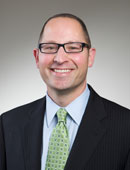
Prof. Brad Joondeph joined the Santa Clara Law faculty in 2000 and writes in the areas of tax law and Constitutional law.
Why do you write?
Because I love ideas, and I find writing to be the truest test of how well I understand an idea. Writing forces you to come to terms with what you really think, to sort out the contradictions in your understandings, and express your ideas so clearly that others can understand them, too. It is a crucible for deeper understanding, and creating a permanent record of your own conceptions.
Is there a scholar who most inspires you?
There are hundreds of people whose work I really enjoy reading. In terms of inspiration, people like W.E.B. DuBois, Augustine, and Pope Francis come to mind.
What do you think has been your most impactful work?
For the two years from when the Affordable Care Act became law in 2010, until when the Supreme Court decided its constitutionality in 2012, I ran a blog (creatively titled the ACA Litigation Blog) which tracked every action filed in federal court challenging the law. It became a clearinghouse for all the pleadings, briefs, and judicial decisions in the 50-odd cases. As I have since learned, a fair number of people used it as a resource.
What impact did it have?
That is difficult to say. But I think it was helpful—to lawyers involved in the litigation, reporters, academics, and even just interested members of the public—to follow what was happening.
What's your next project?
I am presently working on a Constitutional Law casebook, which I aim to publish this summer. It gathers materials I have been developing and using in teaching the course since 2000. I am hoping students find it more accessible than the typical Constitutional Law casebook. It also includes a number of problem sets, so students can constantly assess how well they are understanding the material.
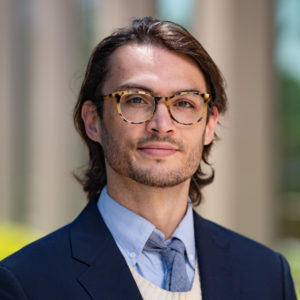
Prof. Nicholas Serafin joined the Santa Clara Law faculty in 2020. He researches at the intersection of moral and political philosophy and anti-discrimination law and policy
Why do you write?
I write to gain conceptual clarity about certain aspects of the law or of morality. Through my writing, I am also seeking to push the law in a more egalitarian direction.
Is there a scholar who most inspires you?
The chair of my dissertation committee, Elizabeth Anderson. Her scholarship is intellectually rigorous, morally compelling and deeply empirically informed.
What work are you most proud of, and why?
My work on immutability. I think ascriptive social identities are central to maintaining a caste system, and the (much maligned) immutability criterion is just the right legal tool for undermining this process.
What's your next project?
My next projects concern the immutability criterion in asylum law and the "badges of slavery" reading of the 13th Amendment. A longer-term project revolves around what moral philosophers call the "basis" of equality. Egalitarians maintain that all persons are moral equals; yet, we differ in innumerable ways. What is it that makes us moral equals? Surprisingly there is, as of yet, no good answer to this question.
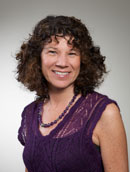
Professor Michelle Oberman joined the faculty in 2004 and is the Katharine and George Alexander Professor of Law. Her research focuses on health law, especially the legal and ethical issues surrounding adolescence, pregnancy and motherhood.
Why do you write?
To make sense of the world.
Is there a scholar who most inspires you?
A few folks who have in common the trait of staying curious and intellectually alive over time.
Stephanie Coontz, a sociologist of marriage, family and culture (although without a formal degree). She asks fresh, important questions, which she tries to answer in creative ways, and she always writes in a way that anyone might understand.
Dorothy Roberts, a scholar of race, gender and the law, whose work moves me as much for its substance as for the way it always seems to convey just the right balance of outrage and compassion.
Catherine MacKinnon, because of the audacity of her vision and the depth of her courage.
What do you think has been your most impactful work?
My first two op-eds on abortion in the New York Times (1, 2). It was a dream come true--writing something that felt urgently important, and having the good fortune to find an editor who agreed with me, and then helped me find my audience.
What impact did it have?
Because they drew on work I’d done over the preceding decade, I was able to credibly explain what does and does not happen when abortion is illegal. Of course, these pieces were just two of many that heralded the shifts brought on by the widespread availability of abortion medications, but I think the tone of these essays helped prod advocates on both sides of the abortion war to have different—and smarter--conversations when talking about abortion.
What work are you most proud of and why?
My work on abortion makes me feel most proud. I was fortunate to come to it relatively late in my career, at a point where I felt comfortable with my voice, as a writer, and was able to bring my full emotional self to the task.
What's your next project?
I’ll be studying the impact of the abortion ban in a state that now bans abortion. My project involves interviews with health care providers, examining how the change in abortion's legality impacts the care they are able to provide to their patients who are pregnant or capable of becoming pregnant.
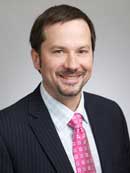
Professor David Ball joined the faculty in 2009. He writes and teaches in the areas of criminal law, criminal procedure, sentencing and corrections.
1) Why do you write?
I write for a variety of reasons. Sometimes it’s because I have learned something beautiful or interesting that I want to share. Sometimes it’s because I want to be in conversation with other scholars—to respond to something they’ve said or to take what they’ve said and apply it to a novel problem. Sometimes it’s because I want to help solve a problem in the real world. Sometimes it’s to answer a question to which I’ve found unsatisfactory answers—or where I think those answers are wrong. One way to characterize all of these answers is that it’s part of the process of lifelong learning: I learn, that makes me ask different questions, I learn some more, I put my thoughts together, and then I learn from people’s responses to those thoughts.
2) Is there a scholar who most inspires you?
There are too many to name! I’ve learned so much from so many people. The beauty of academic writing, however, is that you can go back through my articles—particularly the footnotes and the author’s notes—and trace the people and the works that have influenced and inspired me.
3) What do you think has been your most impactful work? What impact did it have?
On one level, difference to individual people’s lives, it would have to be Mentally Ill Prisoners in the California Department of Corrections and Rehabilitation: Strategies for Improving Treatment and Reducing Recidivism. It has been downloaded thousands of times, mostly by people with incarcerated relatives who suffer from mental illness. There isn’t a lot of guidance for them.
On another, more systemic level, it would have to be Tough on Crime (on the State’s Dime): How Violent Crime Does Not Drive California Counties’ Incarceration Rates - And Why it Should. In this paper, I examined whether the vast disparity in California counties’ use of the prison system could be explained by differences in county rates of violent crime. While I found a relationship that was, in a narrow (p-value) sense, statistically significant, it was not within the 95 percent confidence interval, and, in any event, it only explained 3 percent of the variance in prison usage. This was important because it debunked the folk wisdom that prison admissions are a function of crime. On a policy level, the paper was influential in reapportioning criminal justice funding in California. After criminal justice realignment, California counties were reimbursed on the rates of their historical prison usage. The ACLU was able to use my analysis and, in concert with other advocates, got the reimbursement formula changed to include rates of violent crime.
4) What work are you most proud of and why?
I’m proud of all my articles, but I might say that the historical ones about the ways in which funding incentives led to the rise of state prisons are two that I’m proudest of. The national story is told in Why State Prisons? The California story is told in “A False Idea of Economy”: Costs, Counties, and the Origins of the California Correctional System.
These are both historical articles, and I was a history major—so that might be part of it. But I think the reason why these articles are important are the same things that inspired me to be a history major in the first place. Our understanding of why things are the way they are now are often wrong. Sometimes we can learn that the system we have is not the only one there is or could be or has been (as I explore in Why State Prisons?) and sometimes we can learn that the problems we think are unique to us were, in fact, problems we’ve tried to deal with before (as in ‘A False Idea of Economy’).
5) What’s your next project?
I’m working on a couple of different projects, but the one that is closest to completion is a paper that looks at the meaning of the phrase “public safety” and how a more expansive definition of it—one that is, in fact, justified by existing law—could help promote more balanced pretrial population management.
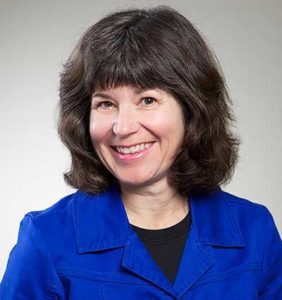
Prof. Kerry Macintosh, the Inez Mabie Distinguished Professor of Law, joined the Santa Clara Law faculty in 1990 and writes in the areas of biotechnology, electronic commerce, commercial law, and contracts.
Why do you write?
Socrates once said that the only good is knowledge and the only evil is ignorance. This statement comes close to being my creed. I write to increase knowledge and share it with the world. With luck, I may persuade at least some legislators not to enact laws that do harm.
Is there a scholar who most inspires you?
I admire Steven Pinker, a cognitive psychologist who writes both academic and popular works.
What do you think has been your most impactful work?
Illegal Beings: Human Clones and the Law (Cambridge University Press 2005) has been my most impactful book so far.
What impact did it have?
Most people do not understand human cloning or other controversial biotechnologies. As a result, legal and policy prescriptions are often based on scientific fallacies. Illegal Beings exposed some of these fallacies. It explained that laws based on such fallacies discriminate against human clones based on their genetic characteristics. By writing the book, I shifted the debate from the pros and cons of human cloning to the pros and cons of laws against that technology.
Illegal Beings got a lot of attention and inspired both applause and outrage. It also moved my scholarship in a new direction. My next book discussed the psychological roots of cloning fallacies: Human Cloning: Four Fallacies and Their Legal Consequences (Cambridge University 2013). And more recently, I have written about genetic engineering, which is a new frontier in law: Enhanced Beings: Human Germline Modification and the Law (Cambridge University Press 2018).
If different, what work are you most proud of and why?
I am very proud of my work on human cloning and genetic engineering. However, before I began to write about those technologies, I published works explaining why privately-issued electronic currencies would benefit commerce and society. I am proud that this 1998 law review article anticipated the rise of Bitcoin and other electronic currencies: How to Encourage Global Electronic Commerce: The Case for Private Currencies on the Internet, 11 Harv. J.L. & Tech. 733-796 (1998).
What's your next project?
I have various projects in mind. Writing yet another book is the most ambitious one. The book will discuss storytelling—its purposes and methods—and explain how science fiction stories encourage lawmakers to prohibit or restrict controversial biotechnologies.
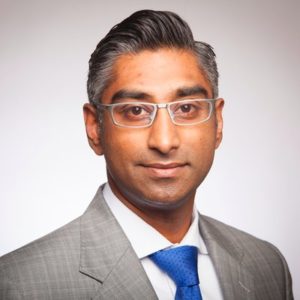
Prof. Pratheepan (Deep) Gulasekaram joined the Santa Clara Law faculty in 2007. He writes in the area of immigration law and constitutional law.
Why do you write?
For me, writing accomplishes three separate goals. First, and at the most personal level, writing helps me understand the particular development of law I’m addressing, and helps me engage with the nuances that may not be obvious from a superficial or first look at the controversy or debate. Second, and relatedly, it allows me to speak authoritatively about a subject to students, practicing lawyers, other law professors and academics, and the public at large through the media. Finally (and perhaps the most ambitious and least realized of the goals) writing (and publishing) – in some small way – allows me to try to convince lawyers, judges, policymakers, and the public to adopt a particular point of view. Given my particular normative perspective in my subject area, this worldview is one that seeks justice and equality for noncitizens, and seeks to de-emphasize the absolute power of sovereigns over borders and non-members.
Is there a scholar who most inspires you?
There are several immigration and constitutional law scholars for whom I have great respect. Within my specific field of immigration law (as it interacts with constitutional principles), Hiroshi Motomura (Professor of Law, UCLA) stands out as a scholar whose work is always innovative, original, and thought-provoking. Every one of his books and articles has inspired me to become a better researcher and writer. But certainly there are many authors whose work I admire. Some that come to mind are Jennifer Chacon (UCLA), Cristina Rodriguez (Yale), Melissa Murray (NYU), Justin Driver (Yale), as well as Colleen Chien and Michelle Oberman at SCU Law.
What do you think has been your most impactful work?
This question is difficult to answer, partly because I’m not sure what the best measure of impact might be. A few examples of some the ways my work has been used:
My early work on noncitizens and the Second Amendment is the subject area least tread by other academics, and has been cited by a few state courts, a federal district court, and several briefs from advocates in cases involving noncitizens and firearms.
Among academics, the empirical work that underlays my immigration federalism law review articles (e.g., Immigration Federalism: A Reappraisal (NYU Law Rev)), and book (The New Immigration Federalism (Cambridge 2015) is probably the most cited and used. That work showed that most state and local restrictionist (enforcement-minded) immigration laws are based on partisanship and white ethnic nationalism, and not on the purported public policy concerns created by immigration (wage effects, crime, language isolation, overcrowding, etc.).
More recently, based on my immigration federalism work, I was asked to serve as an expert in a federal district court case challenging the Ohio motor vehicle department’s policy of denying drivers licenses to the children of undocumented parents, and refugees in the United States. The challengers succeeded, and the federal court ended up enjoining the law.
Next, based on research published online for Stanford Law Review, I have consulted with immigrant advocates in California to vet the set of state laws (currently enacted) eliminating private immigrant detention facilities in the state.
Finally, my work on so-called immigrant sanctuary laws in Minnesota and Columbia Law Reviews is the research that has garnered the most media attention, and it is the work that has allowed me to discuss state and local non-cooperation laws in radio, print, and TV media.
What work are you most proud of and why?
The work I am most proud of is a piece for Northwestern Law Review (Immigration Exceptionalism, co-written with David Rubenstein) on the ways in which constitutional adjudication in immigration law exists outside the Court’s mainstream analytic frameworks. Although this piece lacks the direct impact and utility relative to other work discussed above, this article is the most conceptually ambitious and lays out a claim that distinguishes my thinking from some of the immigration scholars whom I most respect.
What's your next project?
Last term, the Court decided Kansas v. Garcia (2020), upholding Kansas' prosecution of noncitizens under state identity theft laws. Kansas appears to overrule – either explicitly or implicitly – important parts of Arizona v. United States (2012), the Court’s most notable immigration federalism intervention, striking down several provisions of Arizona’s notorious SB 1070. The purpose of the project is to understand the extent to which the doctrine has shifted in those eight years and between those two cases, and to ask which view of immigration federalism is more sound.